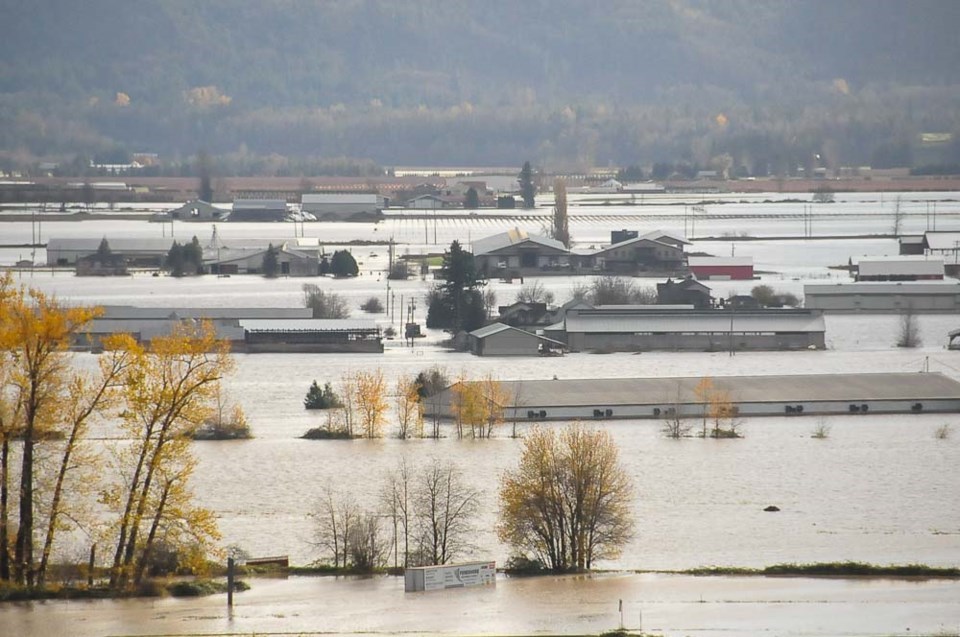A strong majority of British Columbians support a growing campaign to launch a class-action lawsuit against the world’s biggest oil and gas companies to recoup local damages from climate change, according to a recent poll.
The results of the survey, carried out by Stratcom Strategic Communications, found 69 per cent of B.C. residents supported the campaign to sue ‘Big Oil.’ The poll comes within weeks of the City of Vancouver voting to set aside one dollar for every resident to launch the lawsuit.
“It confirms for us that there is a public appetite to make sure that these huge costs of climate change don't fall entirely on taxpayers but that the global fossil fuel industry pays their fair share,” said Andrew Gage, a staff lawyer for West Coast Environmental Law, which backed the poll and is among a handful of groups calling on B.C. municipalities to follow Vancouver’s lead.
The survey found a total of 39 per cent of respondents “strongly support” the lawsuit, which has not yet been filed; another 30 per cent somewhat support the strategy.
While support was strongest among Green voters and historically progressive regions of the province, like Vancouver Island and Metro Vancouver, a majority of respondents backed suing oil companies from every political party and in every corner of the province.
The poll also offered insight into the state of public opinion on climate change in B.C.
In urban areas, 58 per cent of residents said climate change was already harming them; in suburban areas, that dropped to 56 per cent; and in rural communities, 46 per cent said they were being negatively impacted.
Women were more likely to say climate change was already affecting them or someone they know.
Eight out of 10 who said climate change was already having an impact on their lives supported the litigation against fossil fuel companies.
“We’ve seen the heat dome, we’ve seen the wildfires, we’ve seen the flooding — British Columbians are beginning to realize just how costly climate change is for them,” said Gage.
“This is a way we can hold global companies accountable for a share of the cost, which means that it will then show up on their balance sheets for the first time. They will have to make business decisions knowing that there will be a cost to them if they continue to delay action on climate change.”
The campaign to sue ‘Big Oil’ reignited in B.C. in June after several environmental and legal groups called on the province’s municipalities to set aside one dollar per resident and join in a class-action lawsuit against the oil majors.
So far, the City of Vancouver is the only municipality to vote to approve the measure — though Gage said the rapid approval was a surprise considering upcoming municipal elections.
And while Vancouver has an outsized influence in the province, Gage said more cities need to sign on for the litigation to qualify as a class action.
“One of the things that the courts will look to in deciding whether a class action should go ahead is whether other municipalities would potentially file lawsuits on their own and whether it makes more sense to have them heard together,” he said.
“So there’s financial reasons but there are also very compelling legal reasons about why it's important to have much broader support than any one local government — even Vancouver.”
Between 1954 and 2010, just 90 companies were responsible for nearly two-thirds of all emissions from fossil fuels across the planet.
That fact has pushed 20 municipal governments in the United States to sue fossil fuel companies for their role in exacerbating climate change. But none of those cases has been decided, says Gage.
While it’s not clear how such litigation would fare in Canada’s court system, B.C.’s courts do have one big advantage for plaintiffs looking to file class-action lawsuits — even if they lose, the parties to a class action won't have to pay court fees.
“You have an industry that has got a many decades-long history of actually lobbying against climate action, despite knowing that their products would cause these types of impacts,” he said.
“And at some point, you can't sell the product knowing that you're going to cause massive loss of human life, economic disruption and not expect to pay some of the costs.”



